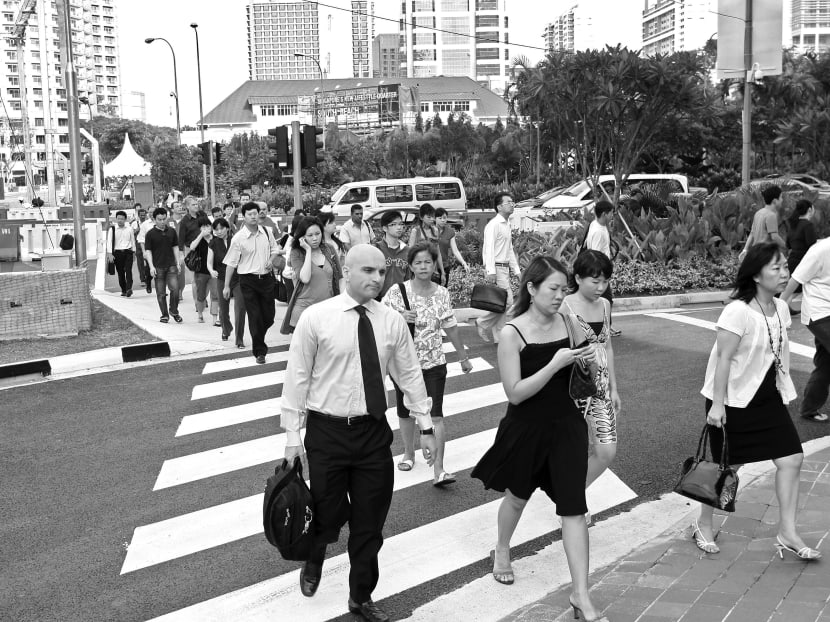Singapore and the cosmopolitan ideal
Much has been said of multiculturalism in Singapore recently, against the backdrop of diverse views on sexuality, religious values, social mores and even academic freedom. A TODAY commentator has suggested cosmopolitanism as an alternative ideal for our society.

It would be a shame if Singapore’s conceptualisation of diversity remained overly simplistic, while its population gets increasingly diverse. Today File Photo
Much has been said of multiculturalism in Singapore recently, against the backdrop of diverse views on sexuality, religious values, social mores and even academic freedom. A TODAY commentator has suggested cosmopolitanism as an alternative ideal for our society.
This reference to cosmopolitanism in Singapore is not new. Then Prime Minister Goh Chok Tong himself made a distinction between heartlanders and cosmopolitans in a National Day rally speech in 1999.
The speech invoked the common image of those who might be seen as cosmopolitan Singaporeans: They have an international outlook; they speak English but are bilingual; they are professionals or managers in well-paying industries such as banking or science and technology; they can work and be comfortable anywhere in the world.
Before we consider if cosmopolitanism is an ideal Singapore should work towards, let us think about what it entails and how it plays out in reality.
NOTIONS OF ‘COSMOPOLITAN’ OVER THE YEARS
It is interesting to note that the perception and meaning of the word cosmopolitan has shifted across history.
According to social anthropologist Steve Vertovec, the label in the 19th century was largely pejorative. It was given to those (especially Jews) perceived to be territorially rootless and multilingual, and whose national loyalties were doubted by the newly formed European states. By the 1950s, the term had evolved to be associated with sophistication and elite wealthy travellers who could afford multicultural/national connections.
Today, cosmopolitanism has been popularised as an outlook or disposition where individuals are open to foreign cultures and practices, and are not against adopting these practices as their own.
In the words of German sociologist Ulrich Beck, cosmopolitans are people who can “internalise the otherness of others”. This is why an ideal cosmopolitan society provides such a seductive vision of multicultural harmony and mutual co-existence.
If only Singaporeans could be cosmopolitan in being more welcoming to (and less judgemental of) cultural practices seen to be different from their own.
COSMOPOLITAN PRACTICES IN REALITY
Like notions of race and mother tongue, we would be mistaken to think that one is either a cosmopolitan or is not. A classification of who is cosmopolitan is often a simplification of an individual’s cultural demeanour and how he/she engages in cultural and linguistic practices.
To scholars like Prof Beck, cosmopolitanism is envisioned as an abstract ideal in constant tension with traditional social categories and ideologies such as race and nation. It is not a condition that exists as human behaviour writ large.
To illustrate this gap between idealised notions of cosmopolitanism and how these orientations are played out in actual contexts, National University of Singapore geographer Elaine Ho investigated the experiences of highly skilled Singaporean migrants in London.
On the surface, these individuals would fit our common notion of cosmopolitans who embrace cultural diversity in their friendships and professional circles, and who develop tastes for foreign music and food. They appear open to and welcoming of cultural difference, easily adapting to British ways of speaking and practices at the workplace.
However, Dr Ho uncovers that they also “mix-and-match cultures and imitate cultural norms selectively in order to sometimes fit in and, at other times, to differentiate themselves”.
Some “Western” practices are deemed more valuable than and superior to “Asian” ones (and vice versa) in particular contexts. This nuanced and complex reality is in contrast to the cosmopolitan ideal that celebrates all cultural differences equally.
COSMOPOLITAN SINGAPOREANS?
It is hence important to realise that while some Singaporeans are inclined to develop certain cosmopolitan practices, this is not to say that they will fulfil all aspects of the cosmopolitan model all the time.
As Dr Ho’s study demonstrates, no one is immune from overarching influences that affect how we perceive and value certain cultural and linguistic practices over others. We make such discriminatory choices all the time, choosing certain forms of language to speak on certain occasions (Standard English in more formal settings, Singlish with friends); choosing where we want to study and work (Singaporeans preferring destinations in the United States and United Kingdom to others deemed less glamorous or profitable).
It is unlikely that Singapore, or any society for that matter, can be truly cosmopolitan in celebrating and embracing all forms of diversity with equal zeal. Nor should we be expected to do so.
Rather, the crux is in how we can negotiate and interact with others with a conscious manner of respect, even when we disagree. This is why understanding the complexities and variabilities behind cultural and linguistic practices is so pertinent.
It would be a shame if our conceptualisation of diversity remained overly simplistic, while our population gets increasingly diverse. Plurality in society ought not to be perceived in terms of neat divisions where one is a “heartlander” with “Asian values”, in opposition to “cosmopolitans” or “liberals” who are “Westernised” or too “ang mo”.
The ultimate irony is if the term cosmopolitan in Singapore re-acquires the same connotations of cultural or national duplicity as in 19th-century Europe.
ABOUT THE AUTHOR:
Luke Lu is a PhD candidate at the Centre for Language, Discourse and Communication at King’s College London.









